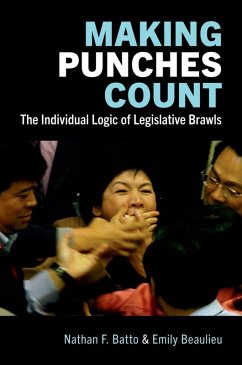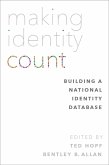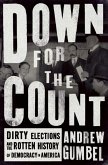In
Making Punches Count, the first comprehensive account of legislative floor violence and its consequences, Nathan Batto and Emily Beaulieu focus on recent episodes from a wide variety of countries, including Turkey, South Korea, Taiwan, Ukraine, Mexico, Uganda, and others. What do cultures of legislative brawling tell us about the health of democracy in a given country? Are the brawls mere fits of passion, or is there a deeper logic at work? Bacchus and Batto argue that legislative brawls are, in fact, calculated acts that serve the interests of the legislators who engage in them. Beginning from the incentives driving lawmakers in different party systems and drawing on both signaling theory and theories of contentious politics, they develop a powerful explanation of why individual legislators choose to brawl. As they show, brawls are more common in younger democracies, particularly ones with high levels of corruption, but sometimes there are contextual factors that make violence an attractive strategy even to legislators in long-established democracies. Ultimately, brawls should be seen as calculated acts of political violence initiated by legislators to advance their careers. Legislators can strategically use brawling to send costly signals to the actors--both opponents and allies--who will have the most influence over their political fortunes. A genuinely novel account of why conflict can reach such extreme levels in democracies, the book also sheds light on the structural mechanisms that drive politicians to violence in settings where we least expect it.
Dieser Download kann aus rechtlichen Gründen nur mit Rechnungsadresse in A, B, BG, CY, CZ, D, DK, EW, E, FIN, F, GR, HR, H, IRL, I, LT, L, LR, M, NL, PL, P, R, S, SLO, SK ausgeliefert werden.









